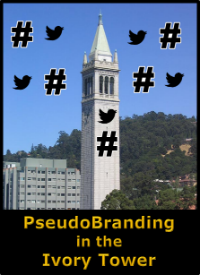 RadioShack recently declared bankruptcy, and Sprint took over 1750 of its 4100 stores. Why?
RadioShack recently declared bankruptcy, and Sprint took over 1750 of its 4100 stores. Why?
You may deem this a counterintuitive move: the Internet was supposed to obliterate bricks-and-mortar retailing. After all, Staples recently combined with Office Depot, because the two entities couldn’t compete separately with Amazon.com.
But something happened on the way to cyberspace bliss: relying solely on the Internet for selling and gathering customer intelligence is a faulty strategy. There’s a loss of human contact.
But you never hear this in industry seminars, do you?
So, Verizon and now Xfinity operate retail stores. AT&T and Apple have run bricks-and-mortar establishments for years. Apple brought in Angela Ahrendts, former CEO of Burberry, to run its stores. Must be important to Apple’s brand.
Newsflash: Without face-to-face contact, you do not know what customers really think — and cannot succeed in branding.
Human Intelligence on the Ground
There are parallels in America’s Central Intelligence Agency, the CIA. Have you wondered why the USA is constantly surprised by terrorist events around the world? The reason: lack of human intelligence on the ground.
From the Cold War’s demise in 1991 until the 9/11 attacks, the CIA lost funding, prestige — and its huge network of embedded spies. It relied instead on foreign intelligence agencies and technology. Brian Fairchild, a former CIA case officer, has outlined a frightening litany of setbacks America suffered because of this defective operation.
James Woolsey, who directed the CIA from 1993-95, explains the downgraded agency (watch CSPAN-resident video between 5:38 and 9:45; otherwise, watch video below):
There are cries everywhere for today’s CEOs to become more social: to depend increasingly on social media. This is nonsensical crap. As I wrote in Be Unique or Be Ignored: The CEO’s Guide to Branding, it’s nearly impossible to get anyone’s attention on social media — unless you’re sniping or griping.
Relying on Facebook and Twitter for branding — instead of having feet on the street — is akin to conducting pseudobranding in the ivory tower. Without accurate human intelligence, from face-to-face contact with your customers, your branding strategy is inherently crippled.
There’s more. Not only are social media filled with white noise, they’re fixed, often fake, and biased. Watch Sharyl Attkisson, former CBS reporter, explain this to a TED audience:
Parting Advice to CEOs
Know what your customers really think and want, as well as how they express themselves. Guesses don’t count.
If you employ people who are unable to talk directly to human beings, because they lack social skills and are constantly tethered to their iPhones, take them out of branding and marketing.
Don’t do your branding in the ivory tower by relying on unverifiable social media — that’s pseudobranding! It’s also corporate suicide.
Be prepared for events and trends. Get feet on the street. Human intelligence will make or break your brand.
POSTSCRIPT #1: Target to Lay Off Thousands at HQ and Reformat Stores
POSTSCRIPT #2: Target’s CEO Brian Cornell Walks the Stores to Make Branding Decisions
POSTSCRIPT #3: Harvard Business Review: Social Media Don’t Help Your Bottom Line
POSTSCRIPT #4: Hillary Clinton Gets Special Protection on Wikipedia
POSTSCRIPT #5: Hillary Buys Fake Facebook Fans, Has 2M+ Fake Twitter Followers
POSTSCRIPT #6: CMOs Hype Social Media While Avoiding It Themselves
POSTSCRIPT #7: Jimmy Iovine: “Algorithms can’t do it all. You need the human touch.”
POSTSCRIPT #8: Wikipedia Rocked by Blackmail Scandal
POSTSCRIPT #9: 51% of Working Americans Earn Less Than $30K per Year
POSTSCRIPT #10: BusinessWeek: Much of Your Internet Advertising Audience Is Fake
© 2015 Marc H. Rudov. All Rights Reserved.
About the Author

Marc Rudov is a branding advisor to CEOs,
producer of MarcRudovTV, and author of four books

